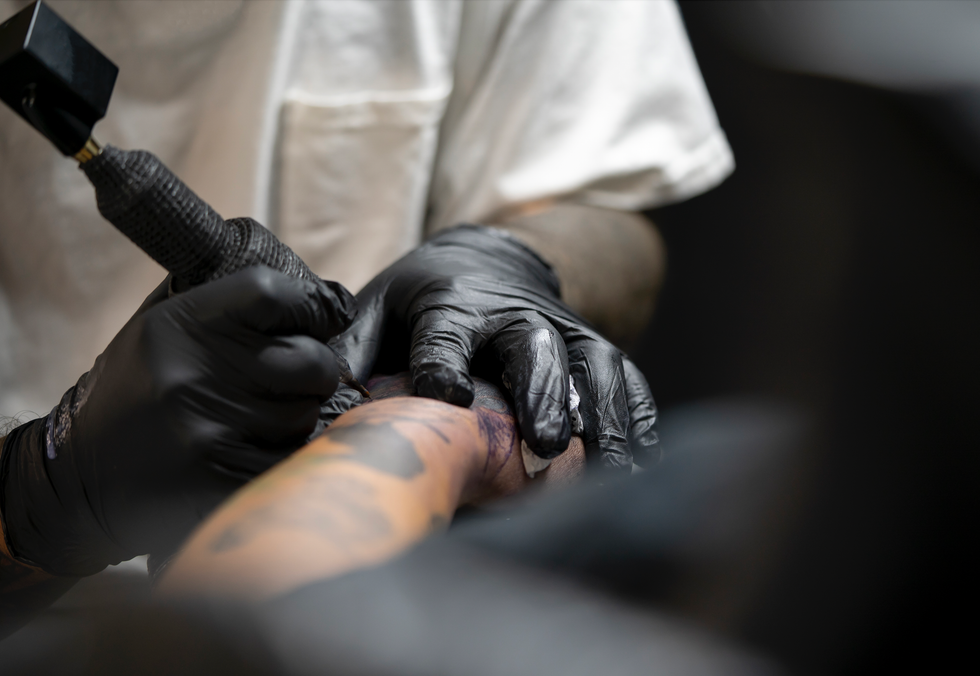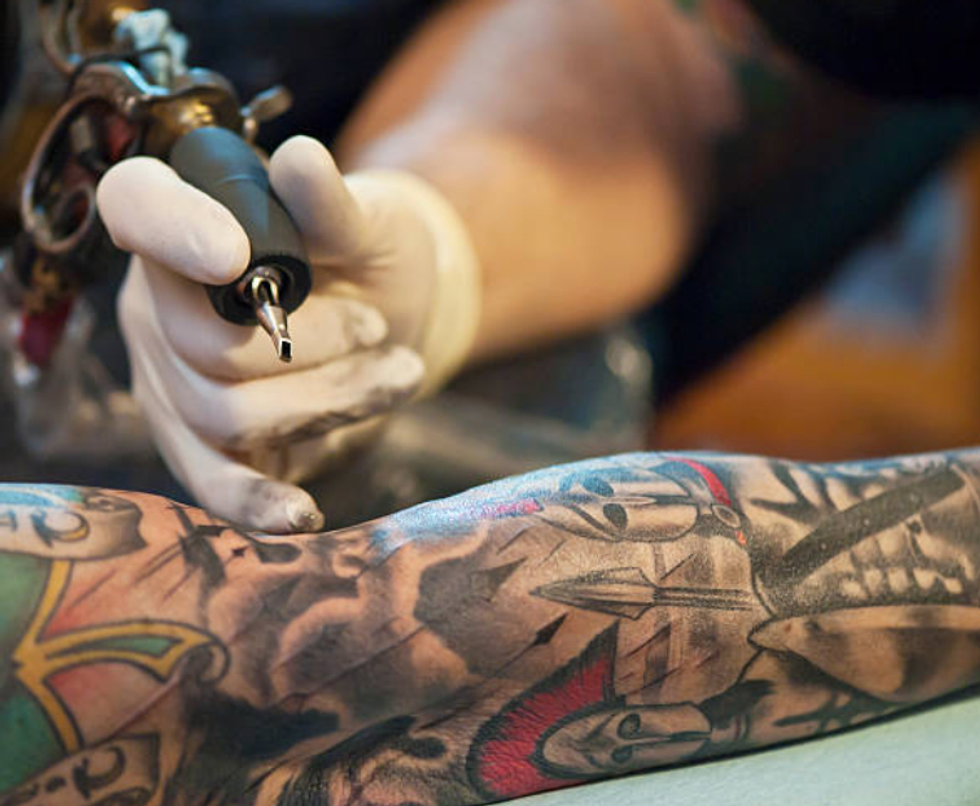Getting a tattoo may increase risk of lymphoma by 21 percent, shock new study suggests
Getty Images
- Getting a tattoo may increase risk of lymphoma by 21 percent
- The size of a tattoo had no bearing on the risk
- It builds on previous studies but no direct association
- Study author urging those affected to get symptoms checked
Don't Miss
Most Read
Trending on GB News
Researchers are advising anyone with a tattoo who has cancerous symptoms to get checked immediately after a shocking new study linked getting inked to an increased risk of cancer.
The chances of developing lymphoma - a type of blood cancer that affect the immune system - jumped by 21 percent regardless of the size of the tattoo, researchers found.
The finding has potentially serious implications given the widespread popularity of getting inked.
Previous studies have drawn a link between tattoo ink and the risk of cancer but the research is rudimentary.
To further investigate the connection, researchers from Lund University in Sweden examined whether getting a tattoo increased the risk of malignant lymphoma - a cancer of the lymphatic system.

Evidence shows that some tattoo inks contain carcinogens but no direct association has been proven
Getty Images
The study included 11,905 Swedish people, 2,938 of whom had lymphoma between 20 and 60 years of age (‘cases’).
Of those participants, 54 percent answered the questionnaire about tattoos; 47 percent of the controls (those without lymphoma) did the same. Tattoo prevalence was 21 percent among cases and 18 percent among controls.
“After taking into account other relevant factors, such as smoking and age, we found that the risk of developing lymphoma was 21 percent higher among those who were tattooed,” said Christel Nielsen, associate professor of epidemiology at Lund University and the study’s lead and corresponding author.
“The results now need to be verified and investigated further in other studies and such research is ongoing.”
Before analysing the data, the researchers hypothesized that a larger tattoo might’ve meant an increased risk of lymphoma. This was not the case: the risk remained regardless of size.
“We do not yet know why this was the case,” said Prof Nielsen.
“One can only speculate that a tattoo, regardless of size, triggers a low-grade inflammation in the body, which in turn can trigger cancer. The picture is thus more complex than we initially thought.”
As of yet, there have been no reported cases of cancer directly attributable to tattooing.
However, evidence does show that some tattoo inks contain carcinogens (cancer-causing substances) – chemicals that have been classified as known or possible carcinogens by the World Health Organization's WHO’s International Agency for Research on Cancer.

A tattoo may trigger a low-grade inflammation in the body, the study suthor speculates
Getty Images
A recent review found that the number of skin cancers in tattooed skin was low, and therefore seems coincidental, however a number of carcinogens that have been found in tattoo inks have been associated with cancers elsewhere in the body, such as the liver or bladder.
“We already know that when the tattoo ink is injected into the skin, the body interprets this as something foreign that should not be there and the immune system is activated,” Professor Nielsen said. “A large part of the ink is transported away from the skin to the lymph nodes, where it is deposited.”
The researchers will now examine whether there is a link between tattoos and other types of cancer, as well as inflammatory diseases. They offer the following advice.
“People will likely want to continue to express their identify through tattoos, and therefore it is very important that we as a society can make sure that it is safe,” said Nielsen.
“For the individual, it is good to know that tattoos can affect your health, and that you should turn to your health care provider if you experience symptoms that you believe could be related to your tattoo.”








